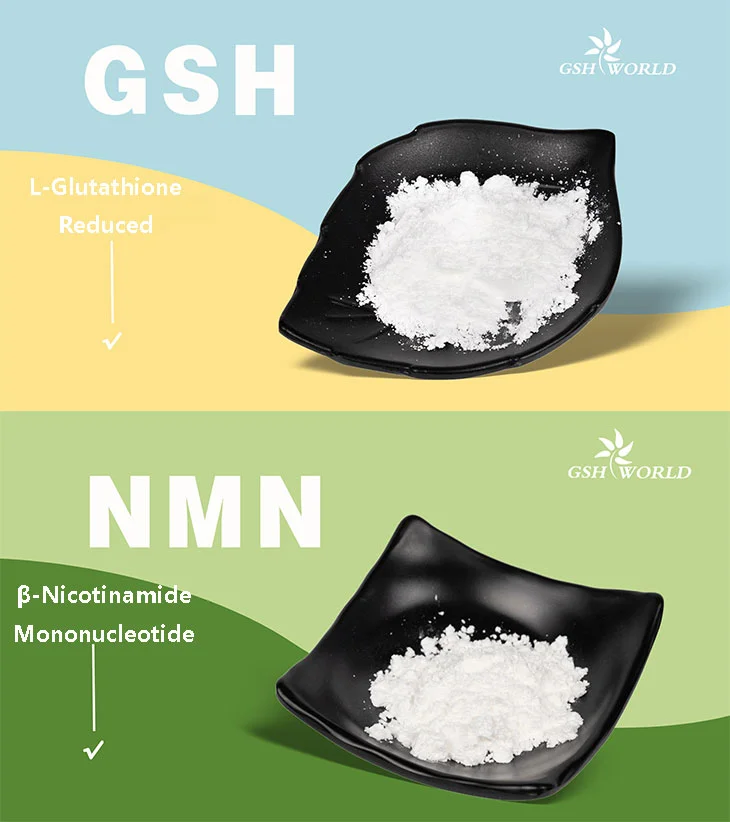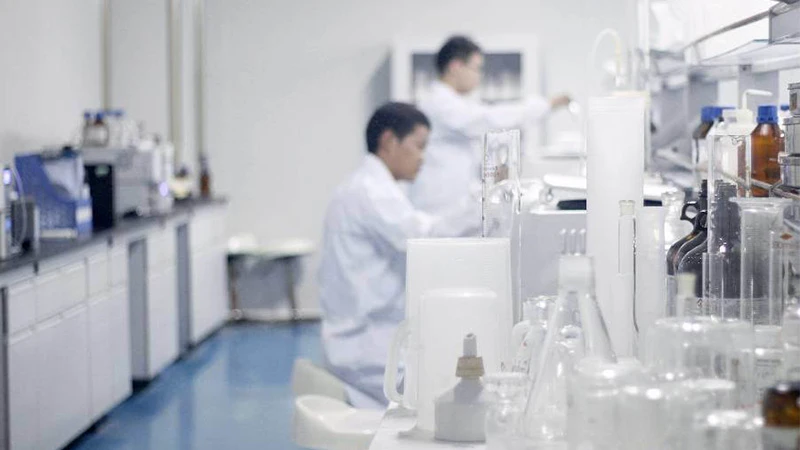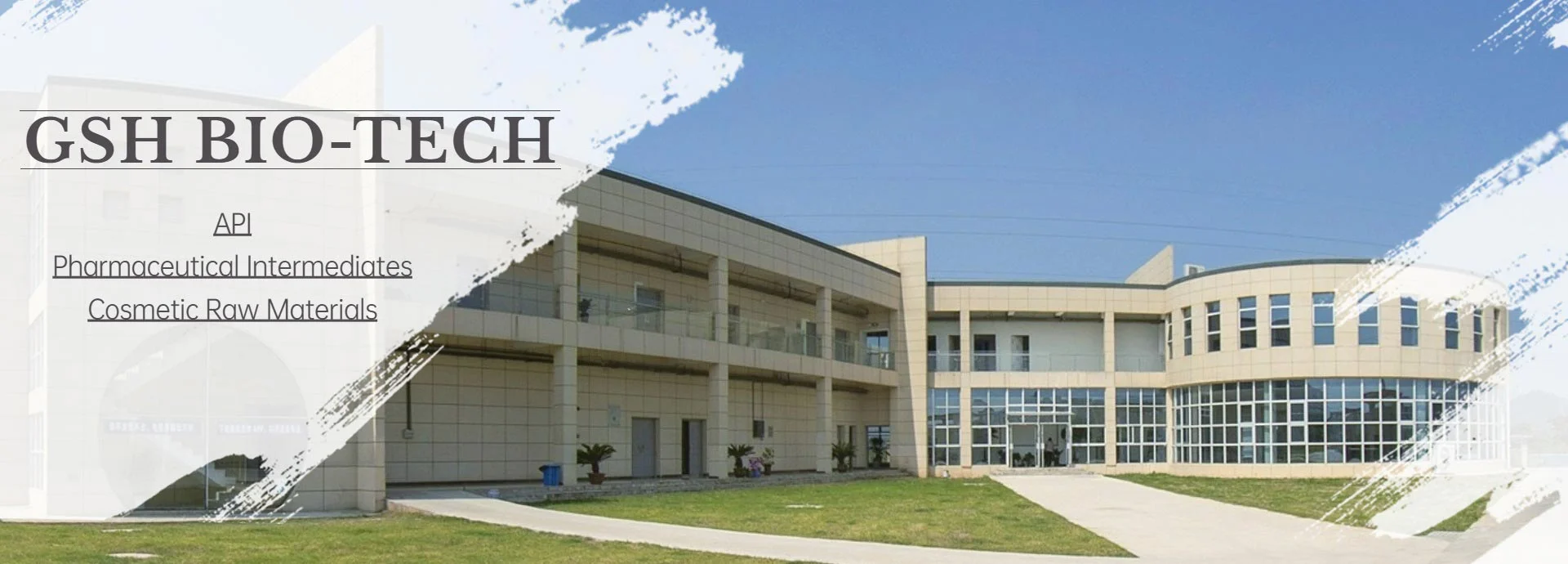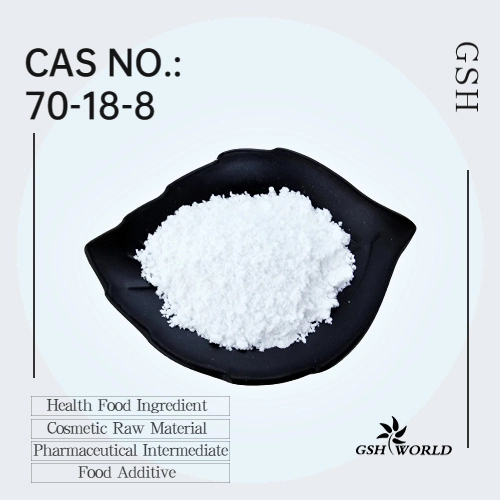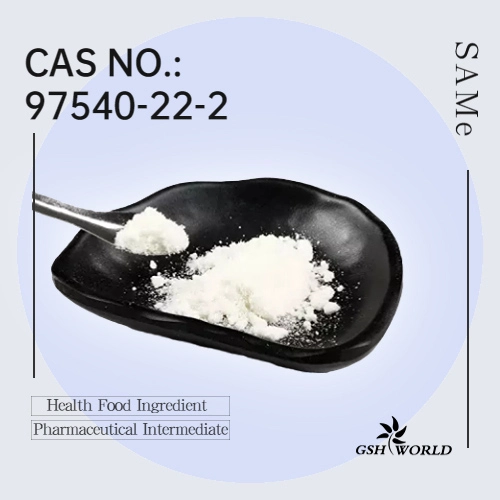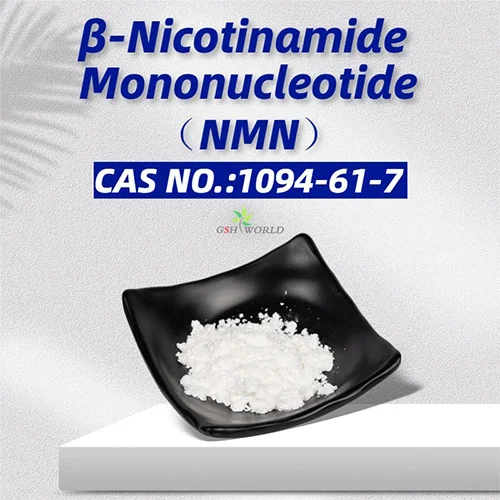Glutathione can be used as a raw material for functional foods
Glutathione (tripeptide) Glutathione is a tripeptide containing γ-amide bonds and sulfhydryl groups. It is composed of glutamic acid, cysteine and glycine. It is divided into reduced glutathione and oxidized glutathione. Glutathione is widely distributed in human liver, kidney cells and red blood cells, and exists in almost every cell in the body.
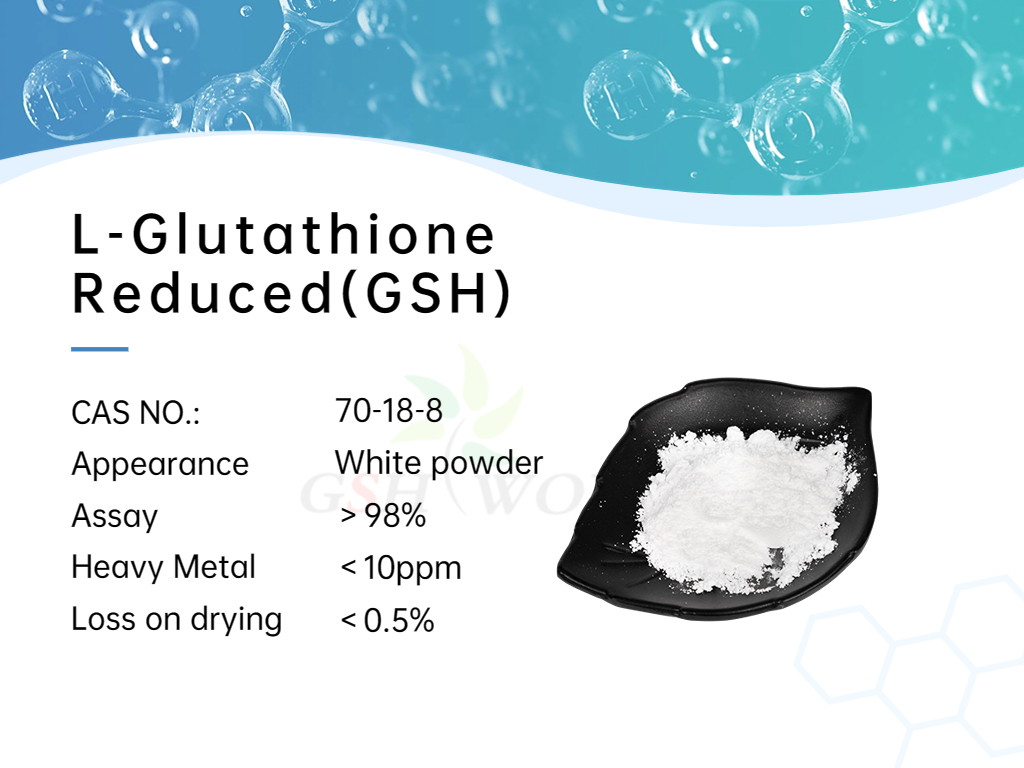
Glutathione widely exists in animals and plants:
play an important role in living organisms. The content in bread yeast, wheat germ and animal liver is very high, reaching 100-1000mg/100g, 26-34mg/100g in human blood, 58-73mg/100g in chicken blood, and 10-15mg in pig blood /100g, the content is also higher in tomatoes and pineapples (12-33mg/100g), while the content in sweet potatoes, mung bean sprouts, onions, and shiitake mushrooms is lower (0.06-0.7mg/100g).
Physiological role of glutathione - anti-aging:
Its main physiological function is to scavenge free radicals in the human body, and as an important antioxidant in the body, it protects the sulfhydryl groups in many molecules such as proteins and enzymes. The structure of glutathione contains an active thiol-SH, which is easy to be oxidized and dehydrogenated. This specific structure makes it the main free radical scavenger in the body. Glutathione can not only eliminate free radicals in the body, but also help maintain normal immune system function. It can also regulate human immunity. Glutathione plays a more prominent role in maintaining health and delaying aging.
Glutathione can also protect hemoglobin from hydrogen peroxide oxidation, free radicals and other oxidations so that it can normally exert its ability to continuously transport oxygen. There is a lot of glutathione in human red blood cells, which is of great significance for protecting the sulfhydryl groups of proteins on red blood cell membranes in a reduced state and preventing hemolysis.
Glutathione can be used as a raw material for functional foods, and is widely used in functional foods such as anti-aging, enhancing immunity, and anti-tumor.
Pharmacological effects of glutathione:
① Broad-spectrum integrated detoxification. The sulfhydryl group on cysteine is its active group (so it is often abbreviated as G-SH), which is easy to interact with certain drugs (such as acetaminophen), toxins (such as free radicals, iodoacetic acid, mustard gas, lead, mercury, arsenic, etc.) and other heavy metals), etc., and has an integrated detoxification effect, and the broad-spectrum detoxification effect is accurate.
②Prevention of alcoholic fatty liver: In China, which has a profound wine culture, the discovery of this function of glutathione is too important. Glutathione protects the -SH group in the enzyme molecule, which is beneficial to the enzyme activity, and can restore the activity function of the -SH group in the damaged enzyme molecule, so that the enzyme can resume its activity; inhibit the fatty liver caused by alcohol damage to the liver.
③For symptoms such as leukopenia caused by radiation and radiopharmaceuticals, it has a strong protective effect.
*This article is excerpted from "Healthy Peptides"
*Special note - This article is for informational purposes only and cannot replace a doctor's treatment diagnosis and advice. It should not be regarded as a recommendation or proof of efficacy of the medical products involved. If it involves disease diagnosis, treatment, and rehabilitation, please be sure to go to a professional medical institution to seek professional advice.
by GSHWORLD
GSHWORLD is China Biological API Manufacturer. China Glutathione Supplements powder suppliers & best Glutathione benefits raw material Factory.


